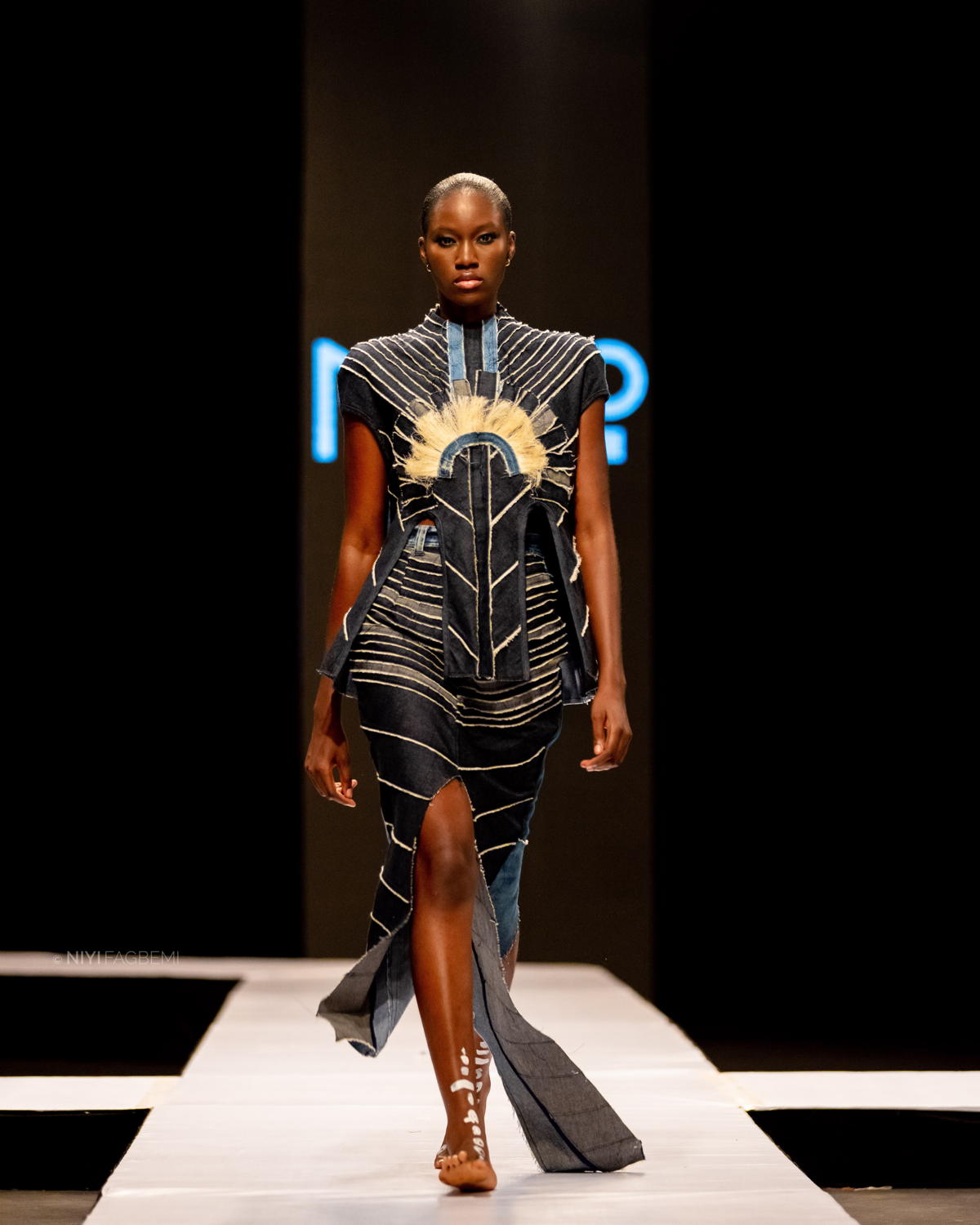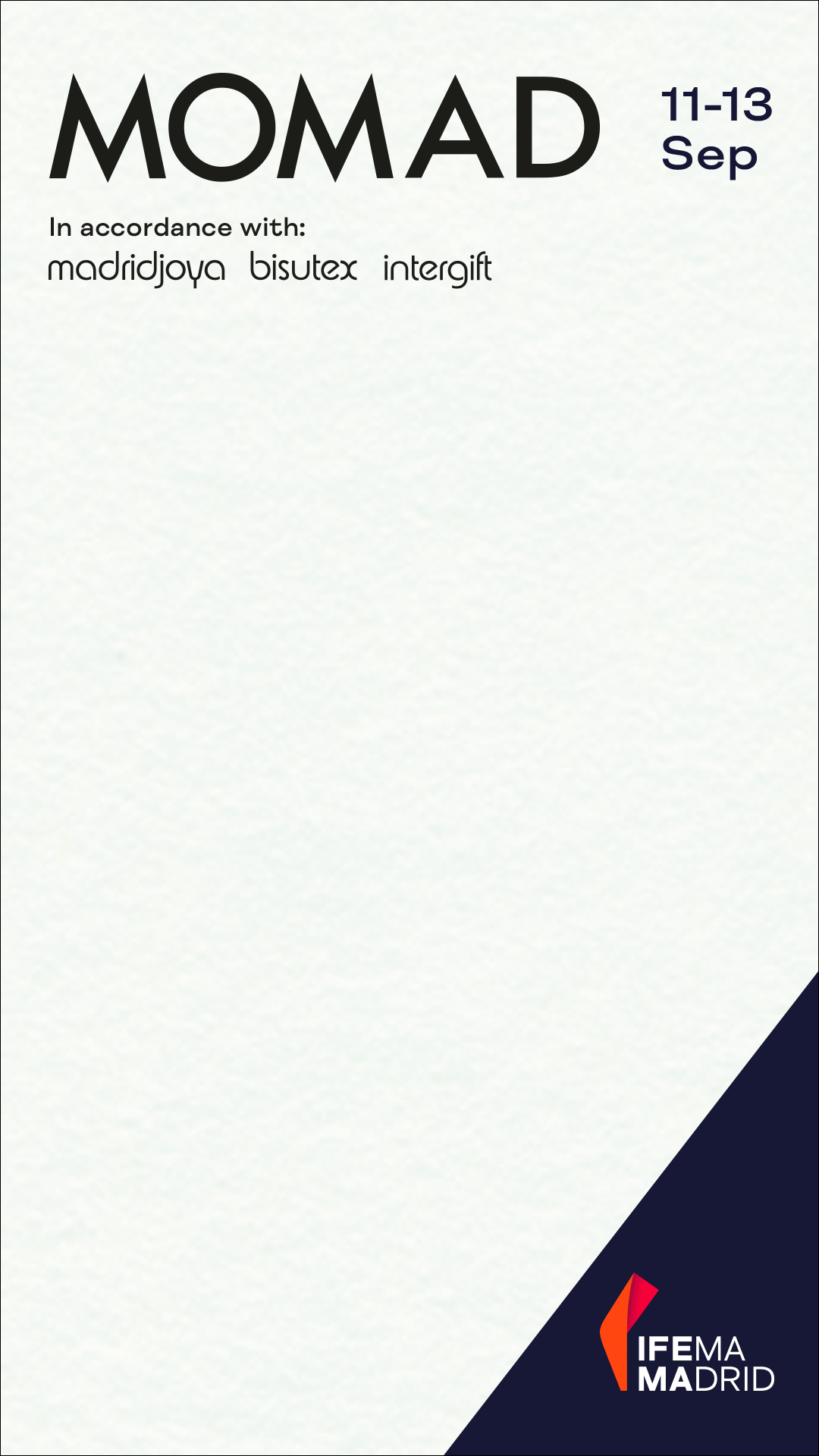
Interview with Nkwo Onwuka | Upcycling Craftsmanship
We sat down with Nkwo Onwuka, founder of the sustainable brand Nkwo to talk about all things circular and fashion. Onwuka gives insight to her brand, the fashion industry in Nigeria, her inspiration, and the amazing work she has done with different communities in Africa.
To offer some background on Onwuka and her brand, Nkwo was first launched in the UK in 2007. It has since been developing innovative techniques, while still honouring traditional Nigerian textile practices like weaving, hand dyeing, and embroidery. Interpreting these methods in a modern way, Onwuka is at the forefront of sustainable fashion. With the Nigerian fashion industry becoming more sustainable in the past decade, Onwuka is pioneering with her brand. Nwko is modern, but not western. Here, find out what she has to say about her brand, the fashion industry in Nigeria, her inspiration, and the amazing work she has done with different communities in Africa.


LM – Luxiders Magazine
NO – Nkwo Onwuka
LM: Where do you think you get your inspiration from? Do you need to go anywhere to get inspired?
NO: I’m really always thinking of new ideas, but sometimes it’s a story, or people. Particularly, I get inspired by African stories. A lot of times, people have a single idea of what Africa is like, but we have so many diverse cultures and traditions. All of these cultures and traditions are so rich that I get inspired by all of our stories.
LM: Are there any specific African poets, writers, or artists who inspire your work?
NO: Not necessarily – I’m quite a big nature girl. I’m interested in tradition and culture, and things that haven’t been documented. That is where I get my inspiration from, real lived experiences.
LM: What pushed you to create your brand – and why a circular fashion brand?
NO: Well, I think it’s because when I was young, I was obsessed with David Attenborough, Dian Fossey, and Jane Goodall. I liked nature. But also, I follow what goes on – I saw how we depleted so many of our resources and watched as animals were becoming extinct. I just felt like if we don’t do anything about it, who will? Somebody has to. Fashion is very visual, it’s something people love to see. You can tell a story through fashion. I thought, if this is the case, why not show people that you don’t have to be so wasteful. When you run your brand, you can be conscious of the environment and tradition and everything else that fashion creates. So that’s what inspired me to have a sustainable brand.
LM: Your last collection made use of jeans and denim fabrics – why did you choose to focus on denim?
NO: Because when I moved back to Nigeria, I didn’t want to have to import fabrics. I just wanted to use whatever I could find. Finding a local woven fabric was really difficult because you have to go into different villages to find it, it can get complicated. And then on the other hand there are piles and piles of the second hand clothes that come in, and I figured there must be a way to do something with it. This is sometimes fabric from the west that would have otherwise been landfilled. And why denim specifically? I chose denim because it’s durable, and it’s easier to get real cotton denim than it is to get other cotton garments, so that’s why I used denim.

LM: Due its beauty, we can see why Nigerian textiles and craftsmanship are preferred in your collections – which of the traditional textiles and craft skills have you found the most exciting to work with?
NO: Everything! The main thing is weaving, on our traditional looms. The weaving process is where the whole cotton thing comes in. Cotton is important for weaving. So, we learn how to grow it, spin it, and weave it into fabric. It’s easy for me to use the weaving loom to weave the waste fabrics into whole new fabrics. And so, what I find exciting is the weaving techniques, but I also turn fabrics into yarn.
LM: How challenging is the manufacturing and design process with dead-stock and second-hand materials?
NO: For me it wasn’t challenging, it was exciting because it was something new. I could be innovative. Nobody had really done it before, so I could just do whatever came to my mind. It was quite exciting.
LM: How do you find scaling and making the right amount of stock in order to prevent waste within your circular business?
NO: Well, there are no high street stores in Nigeria, there are just small ateliers. This helps with the scaling. Then there was the pandemic, which made business blow up. There was an issue in finding highly skilled tailors to help do all the work, but I have found it helpful to show people how to do the work exactly as I want it to be done. I want to employ more people to keep these skills going.


LM: Being at the forefront of the sustainable fashion movement in Nigeria, in what ways is the Nigerian fashion industry getting more sustainable? How is it changing?
NO: The sustainable fashion movement in Nigeria is changing at pretty much the same rate as it is in the west. A lot of people have now started catching on to the fact that we need to be more sustainable. We need to use our local craft; we need to use cotton and denim. Sustainable fashion in Nigeria is really growing very fast. For example, cotton is a rain fed crop in Africa – it is harvested, spun, then woven. It is sustainable. I believe in teaching these craft skills to more people, because if they don’t live in a generation, they will die. These skills need to be brought into the city to survive.
LM: In what ways has community been valuable in the life of your garments, how central is it to your brand? How has connecting with Nigerian artisans shaped your brand?
NO: There are several communities I’m working with at the moment. I mainly work with three communities – I have the cotton growers, and then there’s a community of women who spin the cotton into yarn, and then my Weaving Waste into Wealth project. For this project, I started to work with women living in an IDP (Internally Displaced People) camp. In the North of Nigeria, there are groups like Boko Haram who are Non-State Armed Groups causing displacement. Millions of people have been driven away from their ancestral homes and they live in this camp. So, I have ten women that I worked with in the camp. I trained them, and initially I thought maybe one or two of them would stay, but all ten of them stayed. So now they’ve got jobs for life, using the new weaving skills they’ve learnt. It’s going to change their families, children’s lives, everything. And these skills can be passed down.
LM: What do you want to do in the years to come with your brand? What are your future plans?
NO: I think the biggest plan for the future is that I want to have a centre, which I call the Centre for The Philosophy of Less. This is because I came up with this philosophy for my brand. The Philosophy of Less asks; what’s the use in creating more than we can use if it causes us to live less of a life? I would like the centre to be very much geared towards research and innovation, the newest technology in fashion. Because we do a lot with dyeing, I want to research how we can dye fabric without using so much water. Also, I wonder what we can do with all the plastic – how can we turn it into fabric, or other things we can use again? And so that’s really where I would like this whole thing to go, a research centre.








